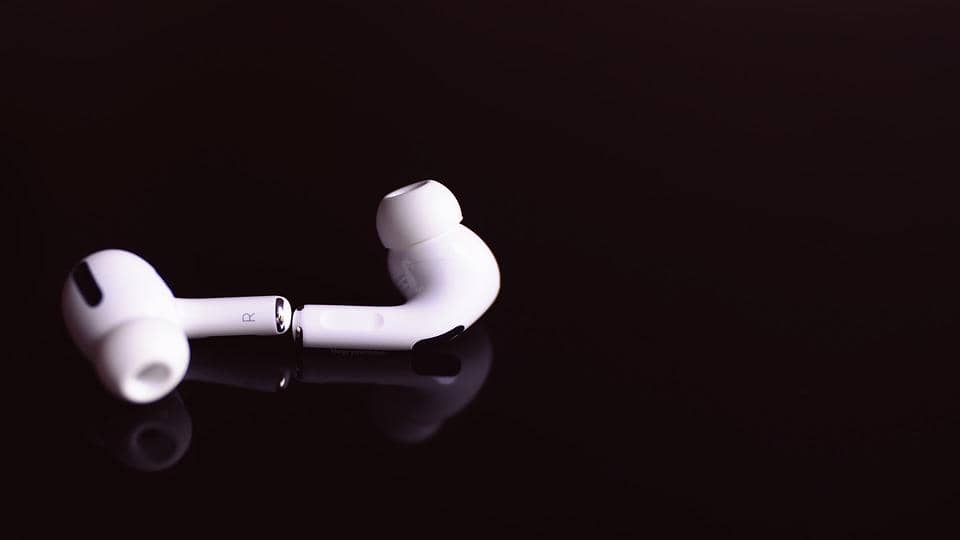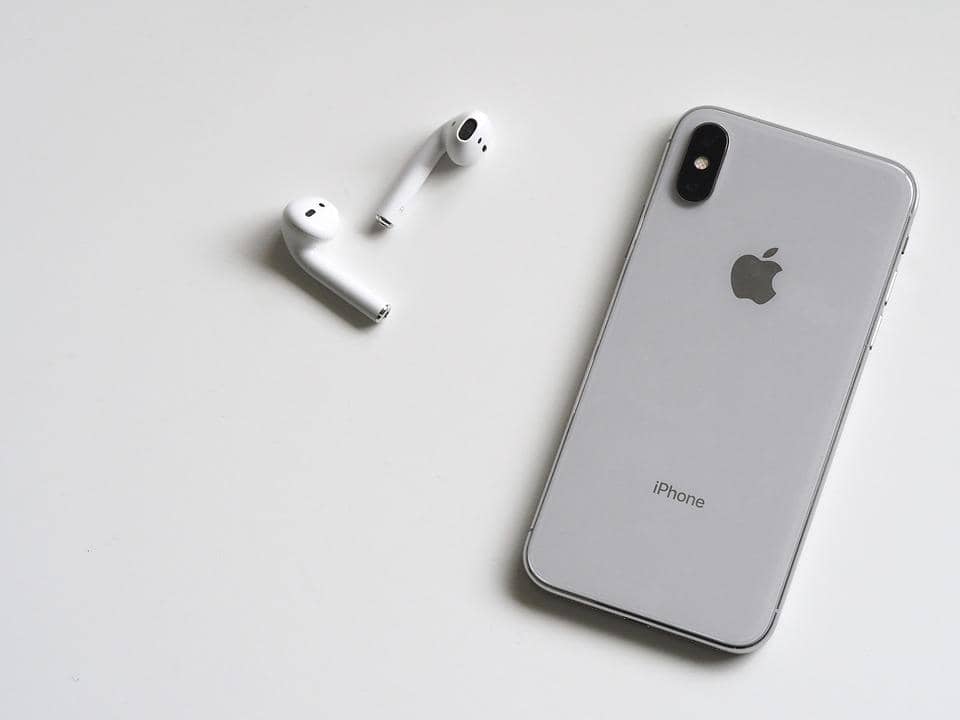You’d think that for wireless earbuds that cost a pretty penny ($249 at time of writing), and which are made by one of the world’s largest companies, they’d be pretty darn perfect.
While the sound quality of Apple’s AirPods Pro are admittedly excellent, a problem sometimes arises when you (rightly) want to keep all of it to yourself.
The question remains: Do AirPods Pro leak sound? And if so- why?
Yes, AirPods and AirPods Pro do have a tendency to leak sound, though it typically only occurs when the sound volume is very high.
Even though AirPods Pro comes with ANC (Active Noise Cancelation) and ambient modes, listening to audio at very high volumes will result in a sound leak.
It might be useful to learn at this point that this is not really a defect, but actually, more of an intentional manufacturing design to ensure that people do not isolate themselves from their surroundings.
However, if your AirPods Pro leaks sound even on normal or lower volumes, this could be due to improper fitting or incorrect sound settings rather than the design.
A sound leak will be especially noticeable when the earbuds don’t sit properly, and this can be prevented by changing the silicone tips and placing the AirPods Pro in your ears in the right way.
Why Do My Airpods Leak Sound?

AirPods may leak sound due to a variety of reasons.
The first is the design itself, which results in sound leakage and allows users to listen to the ambient noise around them.
“But why did Apple create leaky AirPods?” I hear you asking.
It’s a good question, and there’s an equally good reason. In-ear earbuds have become so popular in recent times that people use them just about everywhere.
However, this also brought with it an increase in the number of injuries, accidents, and even deaths related to headphone use.
The American Association for Pediatric Otorhinolaryngology conducted a study where they found that around 63% of drowning victims had earbuds on while swimming, and that 15% of these headphones were EarPods by Apple (AirPod predecessors).
From their findings, it was deduced that in-ear earbuds blocked out all ambient noise.
The users were unaware of what was going on around them and coupled with their concentration on the music this lack of ambient noise put them in grave danger while outside.
Imagine not being able to hear the honking horn of a car behind you due to your earbuds blasting your favorite track on full volume!
Apple made changes to the design over the years and eventually developed AirPods that leaked sound at high volume to allow a little background noise to enter users’ ears. The move worked as intended, and the number of accidents was able to be reduced.
While beneficial in certain circumstances, this intentional feature is not the only reason that can cause AirPods to leak sound.
The performance of headphones and earbuds, particular on lower volume settings, depend largely on how snugly they fit in your ears.
If the fit isn’t right, it’ll result in higher instances of sound leakage. This will also reduce the amount of sound output and make the AirPods seem quieter.
In addition, dirty AirPods also won’t deliver the best performance possible.
At What Volume Do Airpods Leak?

You may start to notice sound leakage from AirPods if the volume is 75% or higher.
Though audio bleeds even on lower volumes, it is largely undetectable and negligible. As the volume is turned louder, the amount of sound that leaks also grows.
If the people around you can hear the sound leaking from your AirPods, the volume is likely to be at more than 75%.
But what if the AirPods are playing only at 50%, and you still notice a substantial sound leak?
Well, the most likely reason for this would be improperly fitting AirPods. If the AirPods seem to be tilted, poking into your ears, or slipping out often, it may mean that the earbuds aren’t sitting correctly in the ears.
Since our ears are shaped and sized differently, there’s no one-size-fits-all solution. You will need to choose ear tips that are a good fit for the size and shape of your ear and ear canal.
Additionally, keep in mind that the material of the ear tips is also important. For example, foam is different from silicon in that it allows a minimal amount of ambient noise to seep through to help ensure that you stay aware of your surroundings.
Most in-ear designs leak sound to some extent when you turn the volume on to a high level. In fact, even fully covering headphones will leak sound if you listen to them at the maximum volume!
Listening to earbuds at an overly loud volume can damage the eardrums and lead to temporary or permanent hearing loss.
Always keep the volume at optimal levels to both enjoy your music and prevent auditory damage at the same time!
How Do I Stop My Airpods From Leaking Sound?

An easy way to stop AirPods from leaking sound is by listening to it at a lower volume! You also need to ensure that the earbuds fit snugly inside your ears and don’t fall out accidentally.
Here are a couple of different things you can also try to prevent sound leakage:
Use Foam Eartips
Foam ear tips are softer and work better at preventing sound leakage.
Moreover, foam tips allow just enough ambient noise just enough to keep you aware of your surroundings. Replace the original silicone tips with foam ones and notice the difference!
Wear Earmuffs
It might be a bit odd to consider wearing earmuffs over your AirPods, but it will solve any instance of sound leakage.
Earmuffs are able to prevent leakage by covering both the AirPods and your ears. Closed-back, over-the-ear earmuffs also help with noise isolation as they can completely absorb noise frequencies and not allow any sound to leak at all.
With that said, listening to AirPods on high volume and covering them with ear muffs can lead to significant hearing damage.
Enlist a friend or family member to wear the AirPods and monitor for sound leakage. This way, you’ll know the exact volume where the leakage is apparent.
Once that is established, try not to listen to your AirPods beyond that volume level to avoid sound leakage in public.
Ways to Improve AirPod Performance

Many users have reported- apart from sound leakage- that their AirPods also become too quiet over time! Luckily, this is an easy problem to solve.
Here are some ways to improve your AirPods’ performance:
Regularly Clean Your AirPods
On a slightly disgusting note, are you aware of just how much wax there is in human ears?
Well, it’s there- and it will quite easily become stuck to the ear tips of AirPods and accumulate in the speakers. This, unsurprisingly, results in a reduction of both volume and performance.
Therefore, it’s important to clean the AirPods after every 2-3 uses at the very least to ensure that your earbuds stay crust-free.
With a cotton swab, gently wipe away any dirt, dust, or wax that is clearly visible on the speakers.
Then, use a soft-bristled brush to gently separate any entrapped dirt from the speakers. Be very careful and work with a light hand here, as the last thing you want is to damage the electronic components inside.
And remember- absolutely no water or spray should be used when cleaning your AirPods!
Check App Settings
Did you check the Music app settings on your phone? A misconfiguration here can lead to abnormally low (or high) volume output in your AirPods.
Check the EQ (equalizer) settings and turn them off if necessary. It’s a good idea to use the EQ only if you know how to customize the settings properly.
Also, check whether you need to turn off the volume limit as this obviously affects how much volume the AirPods can play.
Calibrate The AirPods
Volume levels are case-sensitive. What’s ‘full volume’ for one device may not be the same for another.
Therefore, calibrating the AirPods correctly will help to solve any mismatches in volume and ensure that your AirPods deliver good performance by your standards.
Sync the volume on your iPhone and AirPods by reducing the volume on the AirPods to zero and increasing it as you reduce the volume of the iPhone’s speaker. Re-pairing the AirPods with your phone can also help.
Handle With Care
Don’t leave your AirPods exposed and out in the open. It’s good practice to place them in their charging case when not in use and to carry the case with you.
Use a microfiber cloth to clean the AirPods, and keep them away from moisture and dampness at all times.
Be careful not to drop them from any height, and try your best to handle your AirPods as gently as possible. This way, they’ll last for longer in the best possible condition!
In Summary
So, does the AirPods Pro leak sound?
Surprisingly to some, AirPods are designed to leak sound- particularly at higher volume levels. And even if it is not particularly noticeable at lower volumes, sound leakage is still present.
AirPods bleed more sound when the volume is higher; the louder the volume, the higher the leakage.
Apple-designed AirPods with this intentional leakage feature in order to reduce the risk of accidents caused by a lack of ambient noise.
To minimize sound leakage, listen to your AirPods at a lower volume and switch to using foam ear tips of the correct size. Ensure that your AirPods sit properly in your ear and feel comfortable and snug.
Finally, re-calibrating your AirPods with your phone and adjusting the equalizer settings can also make a big difference in the sound output!
Headphones are one of them. Want to know what the other 14 Most Essential Smartphone Accessories are this year? Click HERE to find out!
